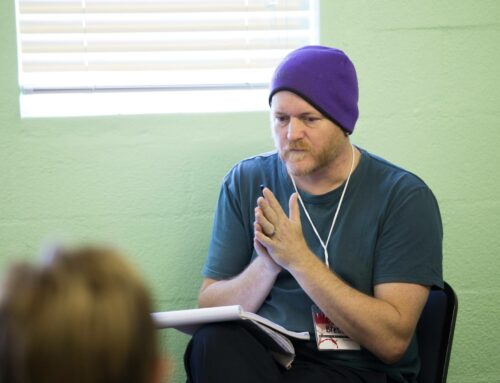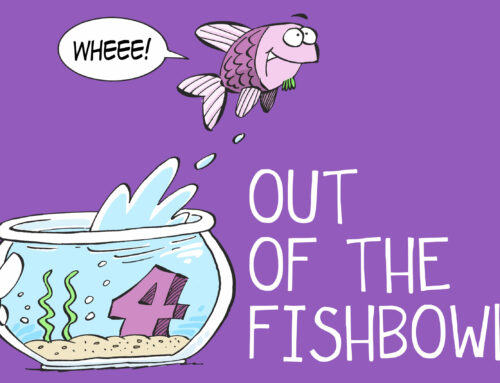So #BlackMonday was a thing. And wasn’t, depending on who you were. And was accidentally so for tbV and others who just happened to realise into the day that they had unintentionally worn black. For me it had to be a lot more intentionally as probably eighty percent of my shirts are black. So i wore my blue ‘Peace to the world’ shirt which felt somewhat appropriate.
What i found interesting when looking on my blog for old posts was the reminder that we already had a Black Monday this year which also caused controversy in terms of who did and who did not observe it.. And that i had already written two follow-up posts. And that this only took place in April [how does that seem so long ago]
So there was a Bleak Monday: Studios were touched post.
And there was my Black Monday review: Wear black if you want, but also don’t.
i would encourage you to give both of those a read as they are both still relevant and, among other things, cover different people’s opinions on the demonstrations back then, the idea of ‘at least i’m doing something’ which i don’t know is the greatest argument, the need for critique and literally a long list of suggestions of things we can do and ways we can walk towards each other.
If you haven’t yet though, i really would love for you to read the second piece i wrote this week, titled Some more thoughts on #BlackMonday and #AllDeathsMatter because while a LOT of people read my first post, which i also think was really helpful as it collated what a number of people were thinking and saying, not enough people read the second which was a much more hope-filled piece.
Walk towards ‘the other’
i had this little exchange with my friend Andy on Facebook this morning:
Andy: Yesterday we saw all races get together for a common cause and a statement was made…. if u want the support of the rest of the country then we have to put away the old SA… it’s never coming back…
Brett: But also in so many ways [that white people find a lot harder to recognise] it never fully left – systems, structures, the old flag, mindsets, treatment of people that work for us, the education or lack thereof legacy, identity fracture, geographical placement and the plunder of resources… there is still much work to be done before we can say that…
Andy: I cannot argue with that.
And i think that is largely it, with the race stuff and the inequality stuff, that we white people tend to not notice it because it doesn’t affect us [unless something or someone has ‘turned it on’ for us] and black, coloured and indian people are unable to not notice it because it plays out for many of them on a daily basis.
This picture for me sums it up. How many times a week do i hear the question, “Can’t we stop talking about race?”
If we [as white people] could realise how annoying that question sounds after a while and then join the dots to start to understand how annoying it must be if your life can’t stop being about race…
# Every time you walk into a shop and the security guard follows you around
# When you climb into a lift and the white lady holds on to her bag a little more tightly
# When you are crossing the street at a traffic light and someone winds up their window quickly
# When you as a black or coloured person walk through an area with an active neighbourhood watch and immediately get codenamed onto everybody’s whatsapp screens
# When you go into a bank to apply for a loan
# When you order something and the waiter looks at you like they’re trying to figure out if you can pay for it or not
…then maybe we would have more of a chance of really starting to get it and move forward.
i have an off switch
Because race is very seldom, if ever, an issue for me unless i decide that it is going to be. i choose to raise a race issue on Facebook or write an article about it. i host a dinner conversation or bring it up at a coffee hangout with a friend.
The moment i get tired of talking about race i can stop and no more race. Because it doesn’t affect me directly, at least not in a negative way that causes me to have to think about it at all.
So what now?
i think a helpful exercise might be to sit down with a cup of coffee – or your own personal relaxer – and answer this question:
What do i think this was about for the other?
Where ‘the other’ is the person who responded to #BlackMonday in the opposite way to you.
i’m not asking you to agree with them – i’m asking you to take a moment to try and figure out what you think this whole thing meant for them.
What is the subtext [the actual message behind the viewed message] of someone else’s action or words? Let’s try for a minute to hold back our suspicions and assumptions and picture someone you know who represents the other side and ask these questions only about them as a person.
# For those of you who were against #BlackMonday thinking about someone who was not:
- Was this person wanting to remember someone they know who has been killed on a farm?
- Was this person suggesting that murders that happen to people who are not farmers are not important?
- Was this person crying out for justice?
- Is this person perhaps scared?
- Does this person think that the violence in South Africa is out of control?
- Was this person looking for a practical way to feel like they were somehow making a difference to the present situation?
Any others you can think of?
# For those of you who observed #BlackMonday thinking about someone who did not:
- Was this person thinking about someone they know who was murdered but not on a farm?
- Was this person suggesting that murders that happen to people on farms are not important?
- Did this person feel upset that more emphasis was being placed on farm murders than the day to day murders experienced all over the country?
- Does this person feel that when black, coloured or indian people are murdered it doesn’t receive the same kind of attention as a white person who is murdered?
- Does this person think that the violence in South Africa is out of control?
- Was this person crying out for justice?
Any others you can think of?
Maybe the next step is approaching someone you know who felt like they were on the other side of the fence to you on this and ask them if you can take them out for coffee and talk about it. And listen to their responses and try and hear and understand any pain or fear you might hear.
Is that something you could do?
How else can we find practical ways of walking towards those considered ‘other’ to us? My friend Jess in Durban wrote this, which i think is incredible:
Wow. Just, wow.
Clearly, we need to listen to each other, South Africans.
Face to face. Not in comments sections.
I’ll be hosting a dialogue this Wednesday pm at my house re: black monday and old flags and crime stats and murder.The goal is to hear things from another person’s perspective, and hopefully create some understanding.
If you want in, add your number below and I’ll WhatsApp you. Anyone is welcome.
i think getting people around a table and some food and then diving deep into conversation is a most excellent way. The more we are able to find each other, to hear each other, to understand each other… the closer we will be to moving forwards and not having to make this all about race again.
Let’s not allow this moment to be lost on us. It’s an opportunity to grow and learn and be better. Come on South Africa, we got this!








Leave a Reply